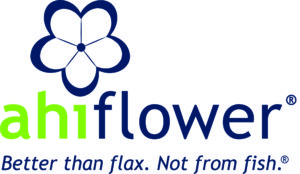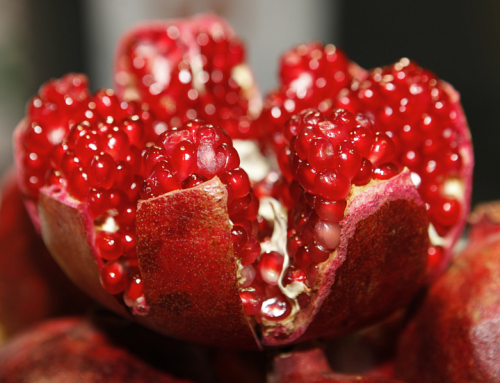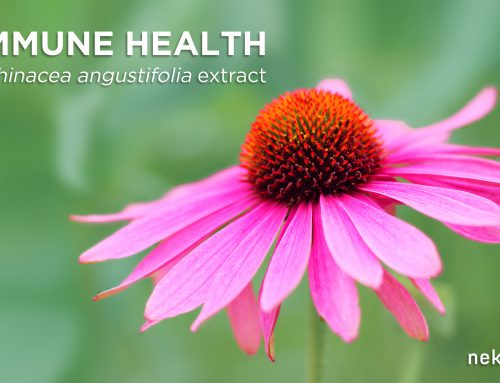23 October 2018 (Kensington, PE Canada) — Last year the journal Nutrients published a novel mechanism by which consuming Ahiflower oil supports the body’s natural anti-inflammatory response, for example after strenuous exercise or immune challenge. Now the same team of Canadian researchers at the University of Moncton has just published a study that deepens our understanding of how Ahiflower oil’s natural anti-inflammatory support may be occurring. The research is reported in the journal Prostaglandins, Leukotrienes and Essential Fatty Acids 138 (2018), 33-44.
The Canadian research team has discovered that eicosatetraenoic acid (c20:4, n-3, ETA), a long-chain omega-3 molecule that is significantly elevated through Ahiflower Oil consumption, can be converted into two novel compounds associated with inflammation management.
Two previously published human clinical studies have shown that Ahiflower oil consumption rapidly improves tissue levels of ETA within 2-4 weeks. This occurs because Ahiflower oil is the richest source of omega-3 stearidonic acid (c18:4, n-3, SDA), the immediate metabolic precursor to ETA — meaning that our bodies convert SDA in Ahiflower oil very efficiently to ETA in circulating cells. Prior to the current study, no biologically active metabolites of ETA have ever been reported.
The University of Moncton team, led by Marc Surette and Kristine Gagnon, confirmed the novel identity and bio-activity of these molecules, as well as a specific anti-inflammatory mechanism of action for one of them. Importantly, the research suggests that consuming a plant-derived omega-3 oil rich in SDA may allow our bodies to produce functionally similar precursor compounds that accumulate when we consume marine omega-3 oils rich in eicosapentaenoic acid (c20:5, n-3, EPA) and docosahexaenoic acid (c22:6, n-3, DHA). This is because the newly discovered compounds are produced and mediated through similar enzymes (called lipoxygenases) in our cells as those deriving from marine and algal oils rich in EPA and DHA.
Commenting on this latest finding, Greg Cumberford of Natures Crops Incorporated said, “We are grateful to Dr. Surette and his Canadian research colleagues for delving deeply into the beneficial parallel role that plant-derived omegas like Ahiflower oil play in supporting natural anti-inflammatory response mechanisms, alongside marine omega sources. I personally believe that Ahiflower oil’s uniquely high SDA and anti-inflammatory GLA combination will continue to ‘cut new ice’ in our understanding of anti-inflammatory response support mechanisms. The researchers from Moncton are leading the way globally.”
A steady stream of recent scientific evidence in human and animal nutrition alike points to the validated role that Ahiflower oil plays as a sustainable, traceable, and meaningful alternative not only to other plant-based omega-3 oils like flax (linseed), chia, and hemp, but also traditional marine-based omega-3 sources.






